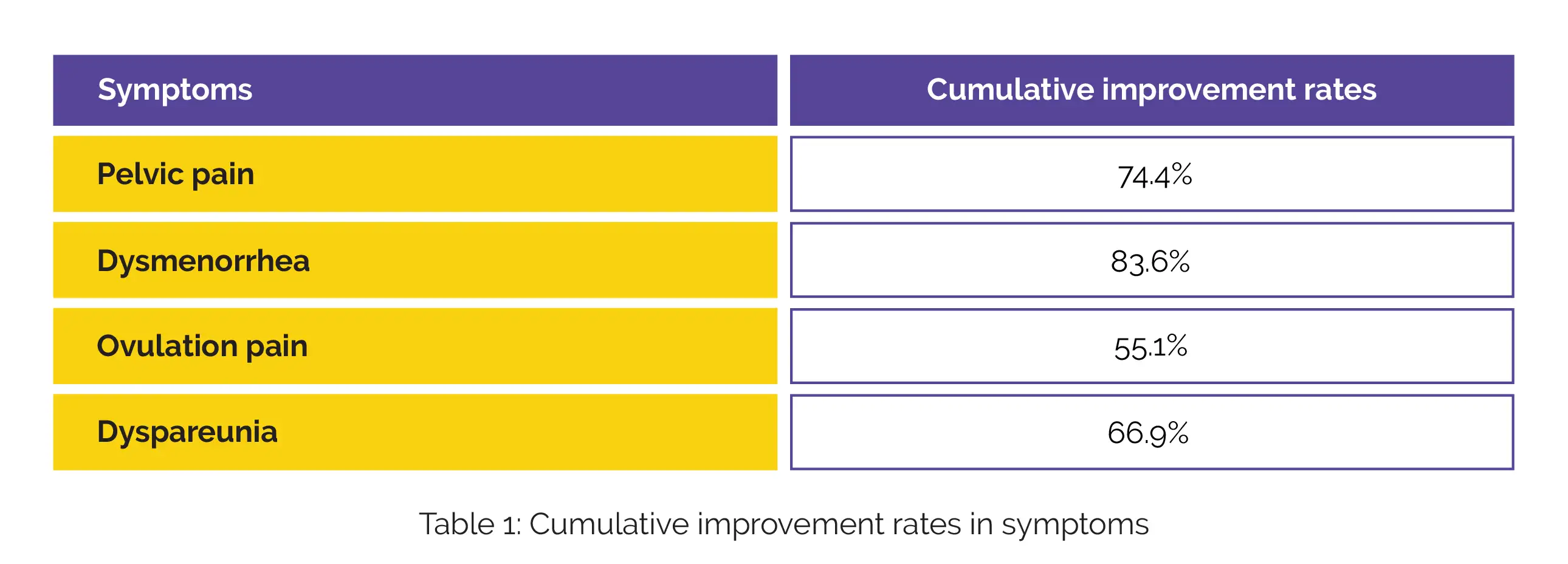Categories
Change Password!
Reset Password!


In women with deep infiltrating endometriosis, postoperative triptorelin therapy improved pelvic pain, dyspareunia, dysmenorrhea, and ovulation pain.
Intramuscular injection of triptorelin (3.75 mg once every 28 days for up to 24 weeks) after conservative surgery in females with deep infiltrating endometriosis was well tolerated and effectively improved symptoms from baseline over the 24-month follow-up period, as elucidated from an observational, prospective, non-interventional study. Researchers undertook this study to explore safety and efficacy of triptorelin in 384 premenopausal females treated with triptorelin following conservative surgery for endometriosis.
At baseline (before operation) and routine visits 3,6, 9, 12, 18, and 24 months following operation, endometriosis symptoms were evaluated with the aid of visual analogue scale (0-10 cm) or numerical range (0-10). The major endpoint ascertained was alterations in symptom intensity over time. The scores for all symptoms (dyspareunia, ovulation pain, pelvic pain, metrorrhagia, dysmenorrhea, menorrhagia, urinary symptoms, gastrointestinal symptoms) reduced from baseline over 24 months. The cumulative improvement rates in symptoms are shown in Table 1:

Notably, the 24-month cumulative recurrence rate (≥1 symptom) was found to be 22.2% and the risk of recurrence of symptoms was greater in people having ≥two vs one lesion (odds ratio [OR] 2.539), and people having severe (OR 8.259) or moderate (OR 5.733) pain vs none/mild pain. Triptorelin displayed good tolerability without the occurrence of severe adverse effects. Thus, triptorelin (gonadotropin-releasing hormone agonists) exhibited a beneficial impact on pain symptoms following conservative surgery for endometriosis.
Medicine (Baltimore)
The efficacy and safety of triptorelin-therapy following conservative surgery for deep infiltrating endometriosis: A multicenter, prospective, non-interventional study in China
Libo Zhu et al.
Comments (0)